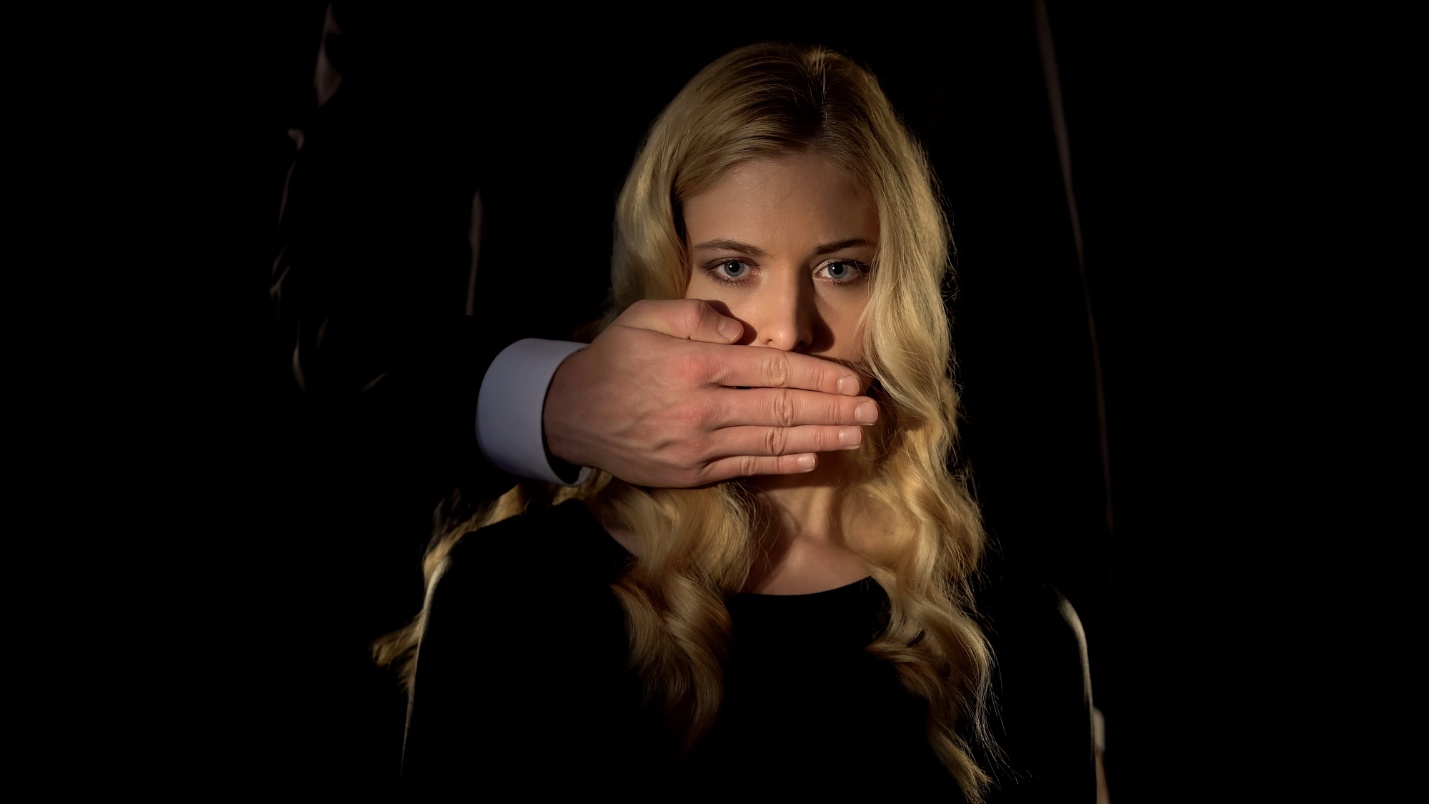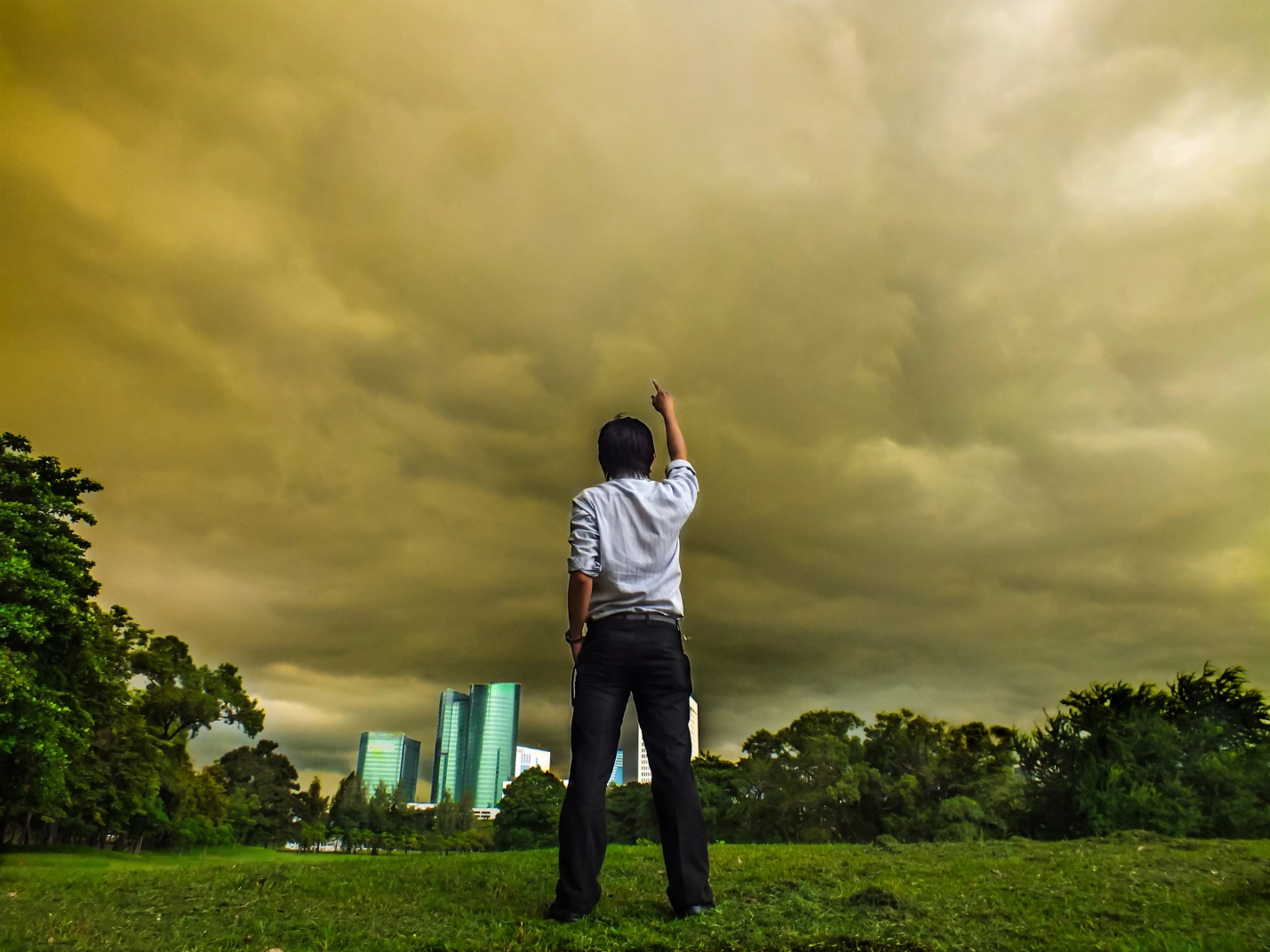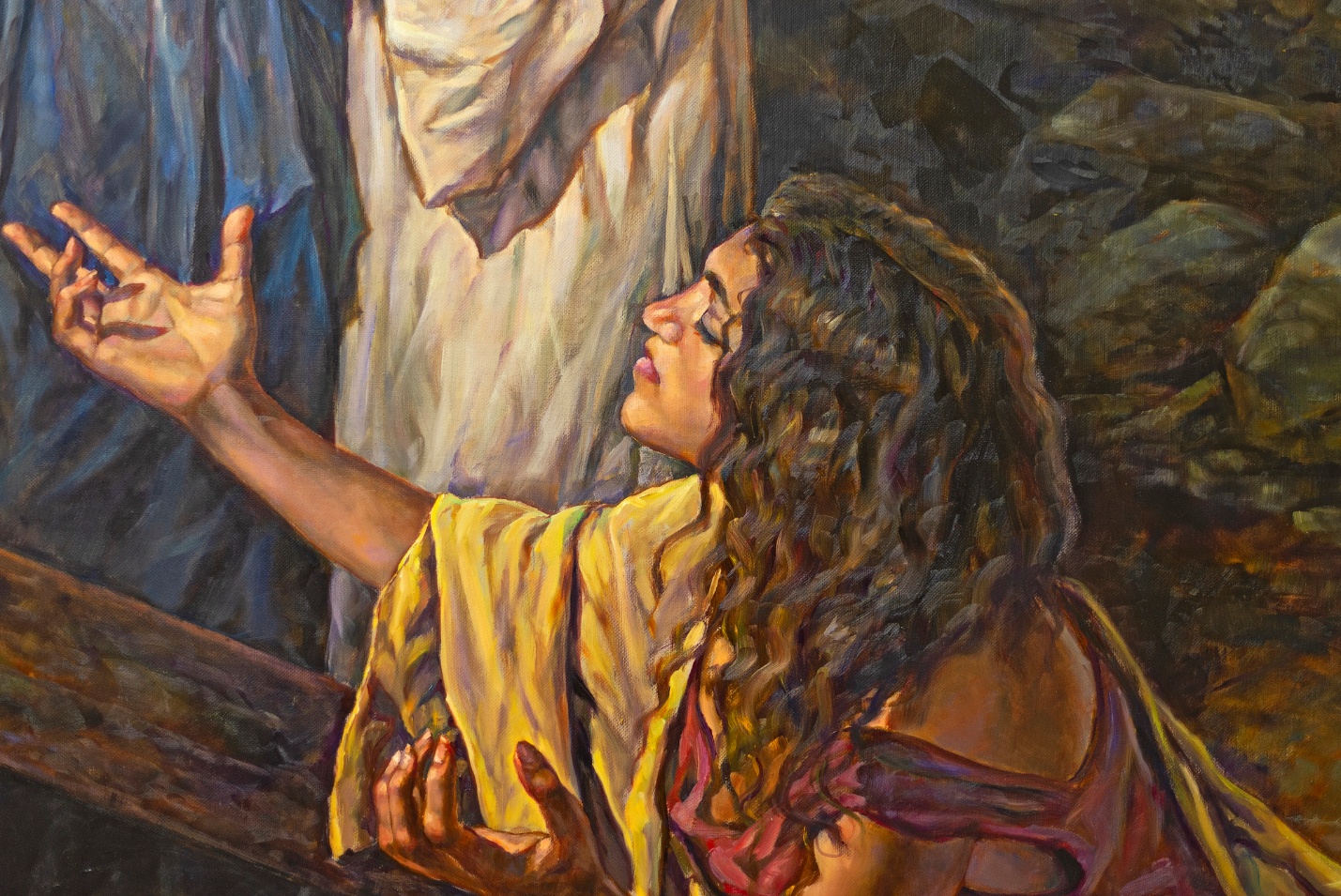BP 250

Let me begin with a disclaimer: this post is not about self-control, which is identified in Galatians 5 as one of the fruits of the Spirit. No, today we are going to talk about control as it pertains to controlling others and the environment around us.
In this world we live in, many people attempt to control others (as well as their environment). They insist that others do what and even be who they need them to do and be. Why do people have such a powerful need to control?
One reason people control is because they are anxious about bad things happening. So, they attempt to control the world around them to avoid these bad things. Here we witness in extreme cases the intense anxious obsessions and compulsions of OCD where a person fears that something bad will happen (and they will be the cause of it) so they attempt to prevent it from happening with behaviors to undo their badness.
Besides OCD, we see people anxiously attempting to control the world around them to prevent bad things like home break ins, children being kidnapped, cancer, even going to hell. Why do you think so many people spend lots of money on supplements and vitamins and healthy diets? Yes, maybe to be healthy in many cases. But some people obsessively ingest supposedly good things into their bodies because they fear getting sick or dying. They attempt to control bad things from happening by putting good things into their bodies.
A second reason people control is to cleanse themselves from the badness of guilt, shame, and sin. Instead of looking inside and admitting their mistakes and failures, they control reality by projecting their badness into other people, or other races, or other political parties, or—their mother-in-law. Ha. They blame others instead of repenting of their mistakes/sins.

These individuals will often raise their fist at God for their life circumstances when sometimes, oftentimes, they are stuck in their unfortunate circumstances because of their own choices. Proverbs 19:3 says, “When a man’s folly brings his way to ruin, his heart rages against the Lord.” Yes, these people refuse to admit they are sinners and instead implicate someone else as the problem, not themselves. They point the finger at God, their spouse, or maybe even their own children.
Yes, humans are born to blame. They often don’t admit when they are in the wrong. How often do parents of young children hear their son or daughter insist, “It wasn’t me.” “It was my brother.” “I didn’t mean to do it.”
We also hear adults—instead of apologizing—say things like, “I’m sorry you feel angry or hurt,” or “You’re too sensitive,” or “My blood sugar is low,” or “You make me so angry,” or “I never get angry at other people the way I get angry at you.”
People who can never be wrong must warp reality to exonerate themselves. Whenever something happens that they could be blamed for, whenever something bad occurs between them and the world, it is always somebody else’s fault.
An example of warping reality to avoid responsibility is the following story about my uncle and my grandmother that happened sixty years ago: One day my uncle drives into town from the family farm and returns without incident. Two days later, his mother drives into town and gets a flat tire on the way back to the farm. What happens next? My grandmother blames my uncle for the flat tire even though he hadn’t driven the car in two days and she was behind the wheel when the flat tire occurred!
Grandmother could never be wrong. As Scott Peck would say, she belonged to People of the Lie, namely, people who must lie to themselves to preserve their image of perfection. There are psychological and spiritual roots to this issue, but whatever the reason, my grandmother, you, and I are all responsible for what we do. Unfortunately, my grandmother and other parents sometimes use their own children as scapegoats to bear their sin. They are willing to sacrifice their own children instead of admitting their sin—a new twist on the Israelites in the Old Testament throwing their children into the fire to please Molech.

A third reason people control others is so they can have power. This reason overlaps occasionally with the one previously mentioned above. I know a woman, Mary, who was raised by an authoritarian father who verbally, emotionally, and physically abused his wife and children. He blamed them, demeaned them, grounded his children for a month if he was in a bad mood, and told his wife that she was a poor excuse for a human being and that she was lucky he had married her because no one else would ever want her. In all these behaviors, he held power over others by dint of domination and fear.
Mary grew up hating her abusive father because she experienced his power, his domination, and his control over the whole family. After one particularly intense episode when her father forced her mother to admit to her children that she was the reason for all the unhappiness in the home, Mary made a (subconscious) childhood vow that she would never again allow her father or any other man to exert any type of power over her (sadly, this vow included God even though she claimed with her words that she loved Him).
True to her vow, when Mary became an adult, she never allowed anyone to control her, to be over her in an authority position, to be better than her in anything she participated in. She became so competitive that she had to win anything she ever played whether it was volleyball, hockey, cross country, or even board games. Whenever she competed, her whole worth was riding on the outcome. She had to win, because to lose was for someone to be superior to her, to control her–and she could never allow that. It would not be incorrect to say that men had to be beneath her. She had to have the power.
A bit ironically, Mary became like her father. Her mother was a kinder and safer person, but Mary saw her as weak. She never stood up to her husband and allowed her own children to walk all over her. Accordingly, Mary hated her mother’s weakness and would not allow herself to identify with such a powerless woman even though she was kind. So, Mary identified instead with her father’s power even though she hated his abusive control.
Mary did not use her power to abuse others as her father did. However, she did use her power to be above others around her—especially in competitive events and in relation to her boyfriend. Her need to be in the power position also impacted her ability to apologize. To admit she was wrong, was to take the weaker position, to be beneath someone else. Not surprisingly, then, she never really admitted that she had made a mistake and so had no need to ever ask for forgiveness.

How sad that authoritarian fathers who wield their power harshly and for shame often spawn daughters who become the female version of them—controlling, powerful, and demeaners of men. Remember, there’s nothing wrong with being a strong man or woman. There’s a lot wrong with it if the man or woman must dominant or hold all the power. There’s nothing wrong with being confident and assertive. There’s a lot wrong with that confidence and assertiveness if it comes in the form of controlling and subjugating others in a way that hides a deep sense of insecurity. Maybe we see the ingredients of a bully here.
In summary, people can become controllers of others and/or their environment because of their anxiety, their avoidance of shame, and their need to be in power. There are other reasons to control, but these three are the ones that jump out at me after working with people for forty years.
My question today is if there is a way for controllers to release their need to control.
The answer is yes but only if you are able to need and depend on someone bigger and stronger than you who you know will protect you, remove your sin and shame, and whose power will be lovingly safe and faithfully predictable.
His name is Jesus.
In short, we can only release our grip on control if we trust. Trust is the genuine article that God built into the human heart before the fall. Our trust in Him reflects the faithfulness of His character. Trust is the initial “commodity” inherently present in the human heart at creation. But when the world fell, so many things were corrupted including the ability to trust.
Instead of trusting God, we doubt Him. Instead of submitting to Him in healthy dependence and need, we are self-sufficient. Instead of obeying His loving and trustworthy presence, we rebel and declare that we will never be under any authority, even the authority of the loving Father who made us from the dust. Instead of believing that we can trust Jesus with our health, our kids, our future, and our sin, we grab the steering wheel and white-knuckle our lives and our reality.

Sometimes we control because we are scared that if we don’t protect ourselves, no one else will, not even God. Sometimes we control because we don’t trust Jesus’ blood to cleanse us from our sin and instead we choose to find ways to exonerate ourselves. Sometimes we control because we want to have the power instead of trusting God’s wisdom and power to direct our lives. Sometimes, we are downright rebellious.
But what does God say to us about trust and control? Just read the following verses to get an idea about what God tells us:
“When I am afraid, I put my trust in you. In God, whose word I praise, in God I trust; I shall not be afraid. What can flesh do to me?” ~ Psalm 56:3-4
“But I have trusted in your steadfast love; my heart shall rejoice in your salvation” ~ Psalm 13:5
“You keep him in perfect peace whose mind is stayed on you, because he trusts in you. Trust in the Lord forever, for the Lord God is an everlasting rock” ~ Isaiah 26:3-4
“Trust in the Lord with all your heart, and do not lean on your own understanding. In all your ways acknowledge him, and he will make straight your paths” ~ Proverbs 3:5-6
“For I know the plans I have for you, declares the Lord, plans for welfare and not for evil, to give you a future and a hope” ~ Jeremiah 29:11
“There is no fear in love, but perfect love casts out fear. For fear has to do with punishment, and whoever fears has not been perfected in love” ~ 1 John 4:18
“Commit your way to the Lord; trust in him, and he will act” ~ Psalm 37:5
So, you can choose to control the world around you or you can trust. When you choose to work at trusting God, He will help you to not fear. He will embrace you with His love that will calm all your anxieties. He will teach you perfect peace (even in the storms of life). He will make clear the paths you are to walk in the days ahead. He will bring plans into your life that are full of future hope. He will act on your behalf to guide you and protect you.
So, what will you choose? Control depends on you, and is a very lonely, isolating journey. Trust depends on Someone outside of you (ultimately Jesus) and guarantees a journey that will never be done alone. Will the journey be challenging? Yes. Painful at times? Yes. Alone. Never.

You can control out of fear—even a fear of your own badness. You can control out of an inability to admit your sin because you believe you have to make yourself good to be lovable. You can control out of a desire to have power over others. Or you can submit to the One who has lived forever and will continue to live forever. You can fight to obey the One who sees you when you rise up and when you lie down.
Fragile people control. Emotionally young people control. Those who do not trust God control. People who feel bad and ashamed control.
Don’t be these people, at least not for the rest of your life. Yes, it does take time to learn to trust God and others. So, be patient with yourself.
Run to God. Remember, He is the brother and friend and Savior and Warrior of your heart whose word says, “For we do not have a high priest who is unable to sympathize with our weaknesses, but one who in every respect has been tempted as we are, yet without sin. Let us then with confidence draw near to the throne of grace, that we may receive mercy and find grace to help in time of need” ~ Hebrews 4:15-16.
So, draw near. Let go of the sinful habit of control. Release the pride and fear that produce self-sufficiency. You are not alone anymore. If you were alone, scared, and ashamed when you were a child with no one you could trust, that was then, and this is now. Now you are not alone. He wants to be with you, to be close, comforting, and strong for you.
Let go of the steering wheel or those monkey bars you are gripping so tightly and learn to trust.
Remember, His name is Immanuel, God with us. He wants to take care of you.

“ O Lord, you have searched me and known me!
2 You know when I sit down and when I rise up;
you discern my thoughts from afar.
3 You search out my path and my lying down
and are acquainted with all my ways.
4 Even before a word is on my tongue,
behold, O Lord, you know it altogether.
5 You hem me in, behind and before,
and lay your hand upon me.
6 Such knowledge is too wonderful for me;
it is high; I cannot attain it.
Psalm 139
